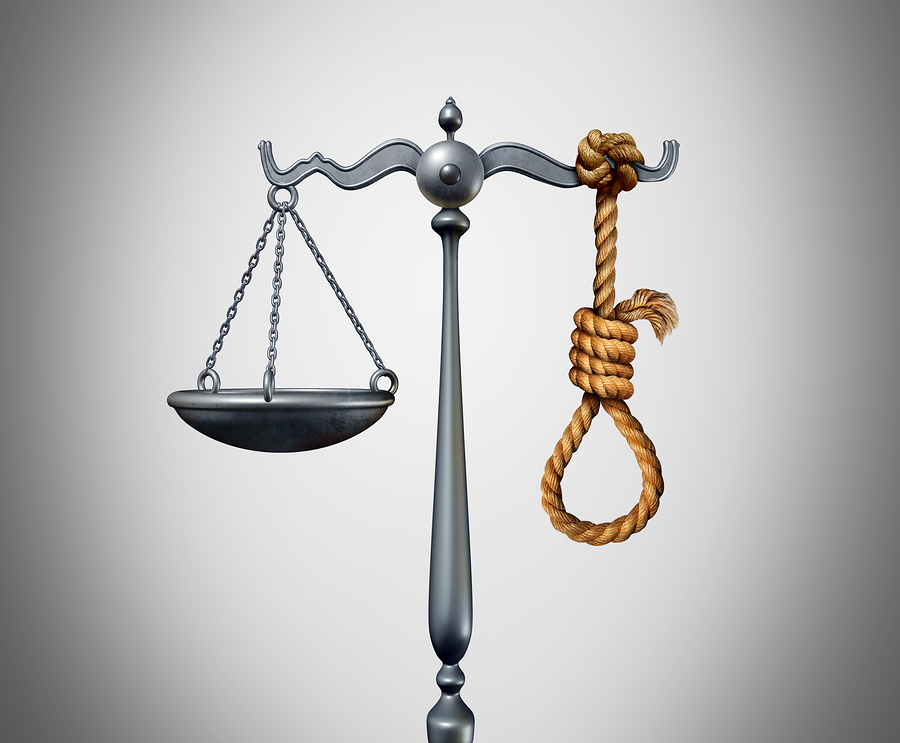Note: The views and opinions expressed in this op-ed are those of the author and do not necessarily reflect the views or positions of Polinsights.
The death penalty remains one of the most contentious issues in American politics and criminal justice. Supporters argue that it ensures justice for the most heinous crimes, often invoking the principle that “the punishment should fit the crime”—a concept traced back to Hammurabi’s Code. This sentiment crosses party lines, with both Republicans and Democrats endorsing capital punishment in certain cases. Yet, public opinion and political ambition heavily influence legislative decisions, as elected officials often align their positions with the electorate to secure votes.
Opponents of the death penalty raise profound ethical and systemic concerns. They argue it violates the right to life, is applied arbitrarily, and disproportionately targets African Americans. Data shows Black individuals are significantly more likely to be sentenced to death than White individuals, highlighting deep racial disparities in the justice system.
A practical solution to reduce the harm caused by the death penalty—without requiring immediate abolition—would involve lowering the eligibility criteria for capital punishment and reducing the waiting period for those already on death row. This dual approach could curb the number of individuals sentenced to death, lessen racial disparities, and increase the likelihood of justice being served swiftly and fairly. Reducing the waiting period may also appeal to conservative advocates who prioritize swift justice for egregious crimes.
Legislation surrounding the death penalty has been mixed and often split along partisan lines. While many acknowledge that capital punishment does not necessarily deter crime and that innocent people have been wrongfully convicted, strong opposition remains, especially among Republicans.
Some states have successfully moved to abolish the death penalty. In the state of Washington, for instance, S.B. 5087 was passed in 2023, formally amending the state constitution to ban capital punishment. The bill passed along party lines, with all Democrats in favor and most Republicans opposed. Washington’s decision was significant, as Black individuals in the state were four times more likely to be executed than their White counterparts. Although this measure may not completely eliminate racial disparities, it is a step toward preventing further unjust executions.
Other reform efforts have been less successful. Texas introduced H.B. 314, which would prohibit the death penalty in cases based solely on a single eyewitness testimony. The bill highlighted the historical danger of racially charged accusations, reminiscent of the Jim Crow era. Though such discriminatory laws no longer exist, the potential for misuse remains—a concern that HB 314 attempted to address. Unfortunately, the bill failed to advance.
At the federal level, attempts to pass death penalty reform rarely gain traction due to deep political polarization. Republican lawmakers generally oppose abolition, while Democrats support it. Progress typically occurs only in states with Democratic majorities.
Given the current political climate, a federal ban on the death penalty is unlikely. However, incremental reform remains possible. Lowering eligibility standards, as proposed in H.B. 314, and shortening death row wait times could reduce the number of executions and decrease the chances of wrongful convictions. These measures might also lead to a gradual phasing out of the death penalty as fewer people meet the criteria for execution.
To build broader support, bipartisan concessions are necessary. Republicans may be more likely to agree to reforms if they result in faster sentencing for convicted offenders, aligning with their emphasis on timely justice.
Another critical reform involves increasing funding for public defenders and improving investigative resources. Many death row inmates cannot afford private attorneys, leaving them with overworked or under-resourced public defenders. Investing in better legal representation and more thorough investigations would reduce wrongful convictions and promote fairer outcomes.
While support for the death penalty remains strong among Republicans, it has been gradually declining. This trend suggests that public opinion—and by extension, political positions—may shift over time. As this happens, advocates should continue to push for reform through state legislatures, focusing on racial disparities, wrongful convictions, and the moral implications of execution.
Democrats should make capital punishment a central issue in their campaigns, emphasizing it as a fundamental human rights concern. With sustained effort, bipartisan cooperation, and public education, meaningful reform—or even eventual abolition—may become a reality.



Leave a Reply